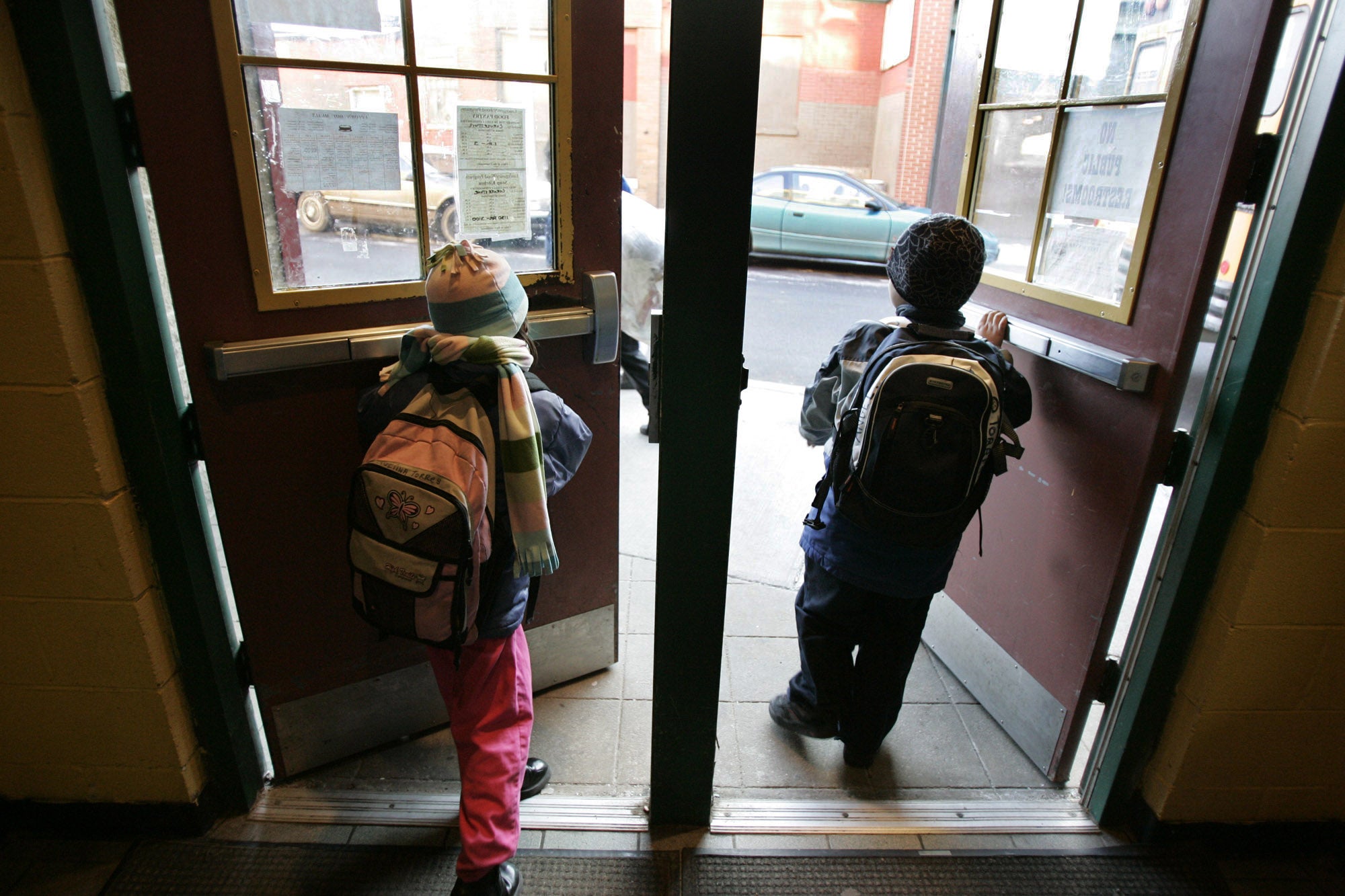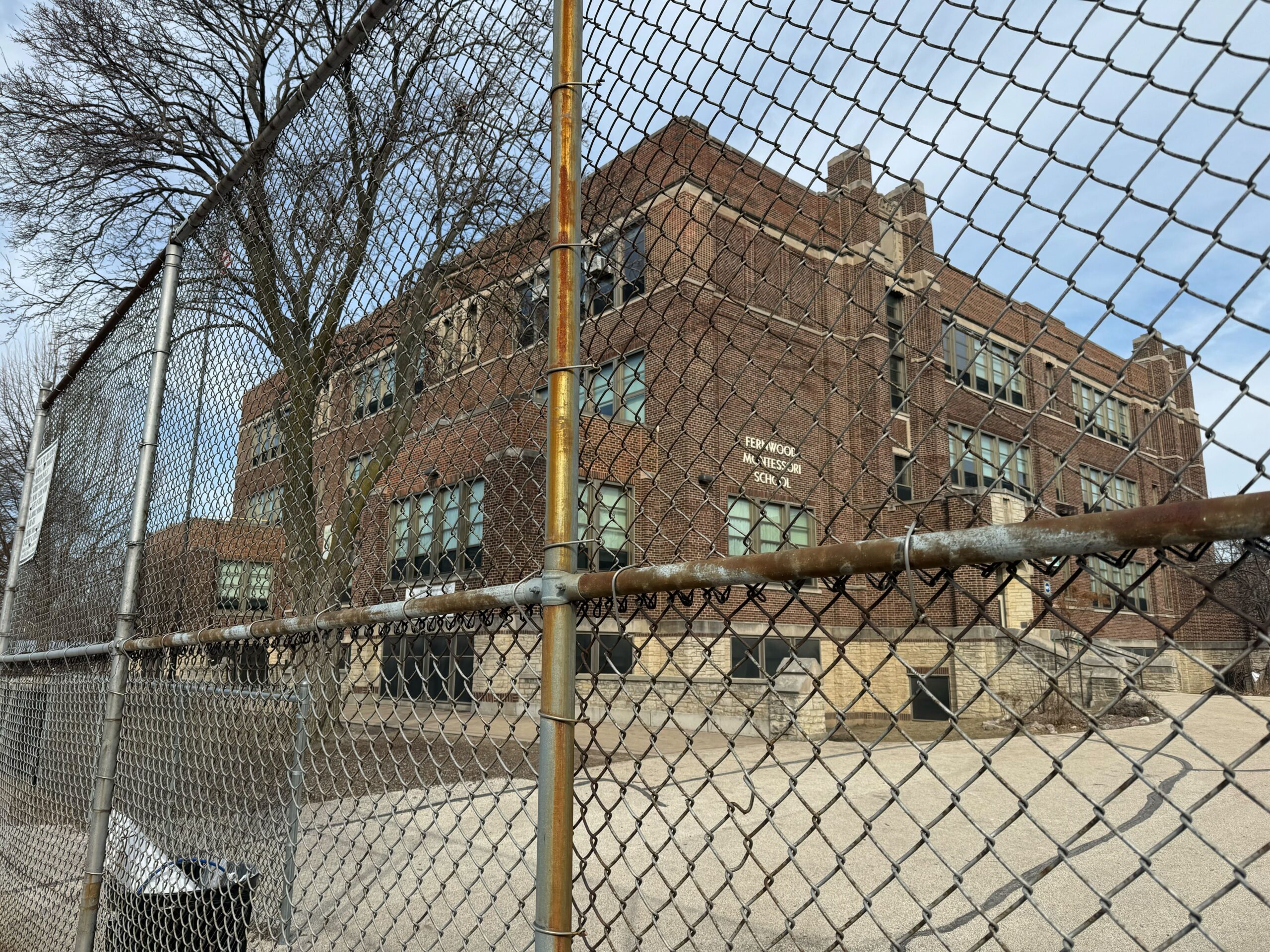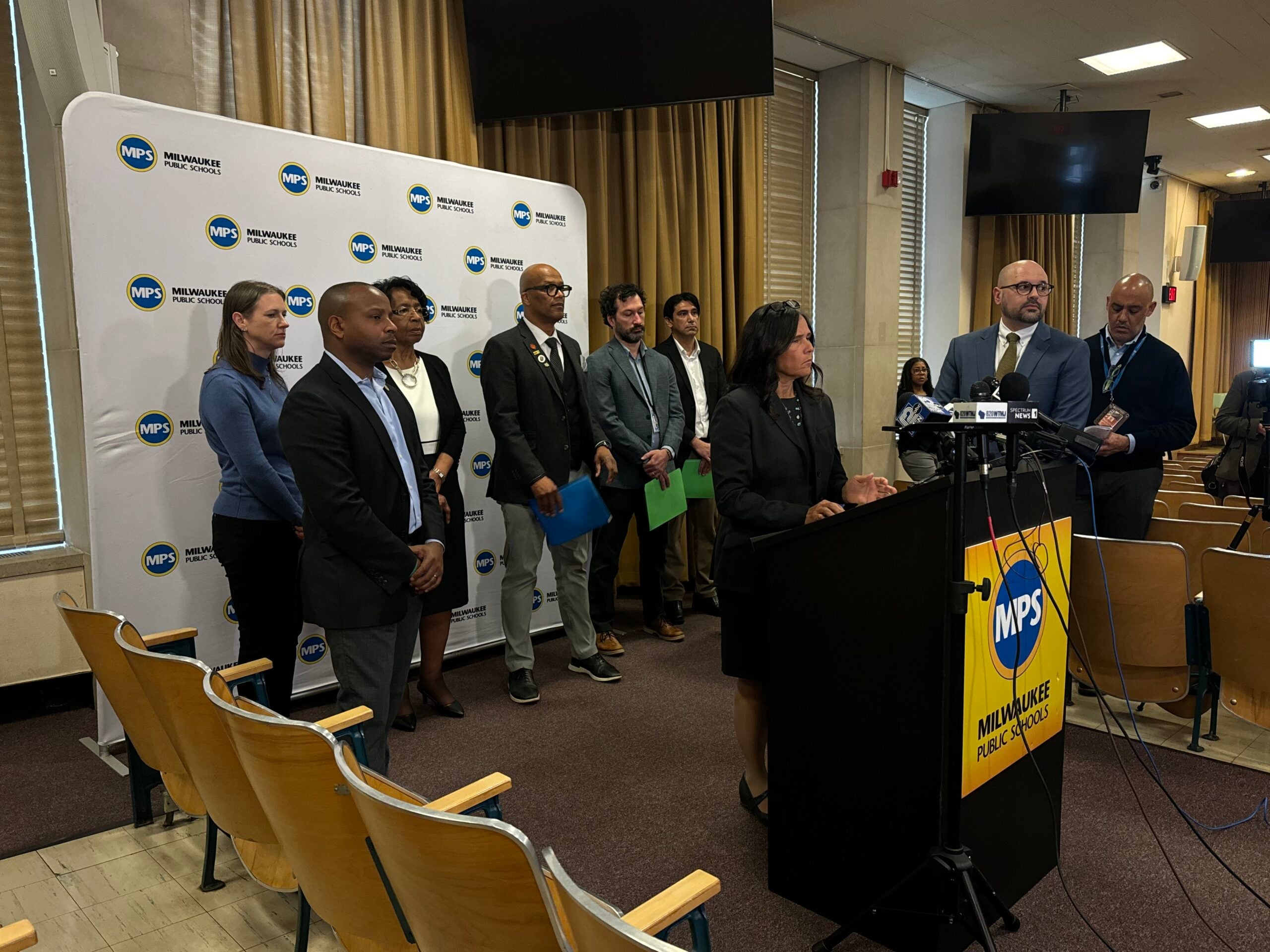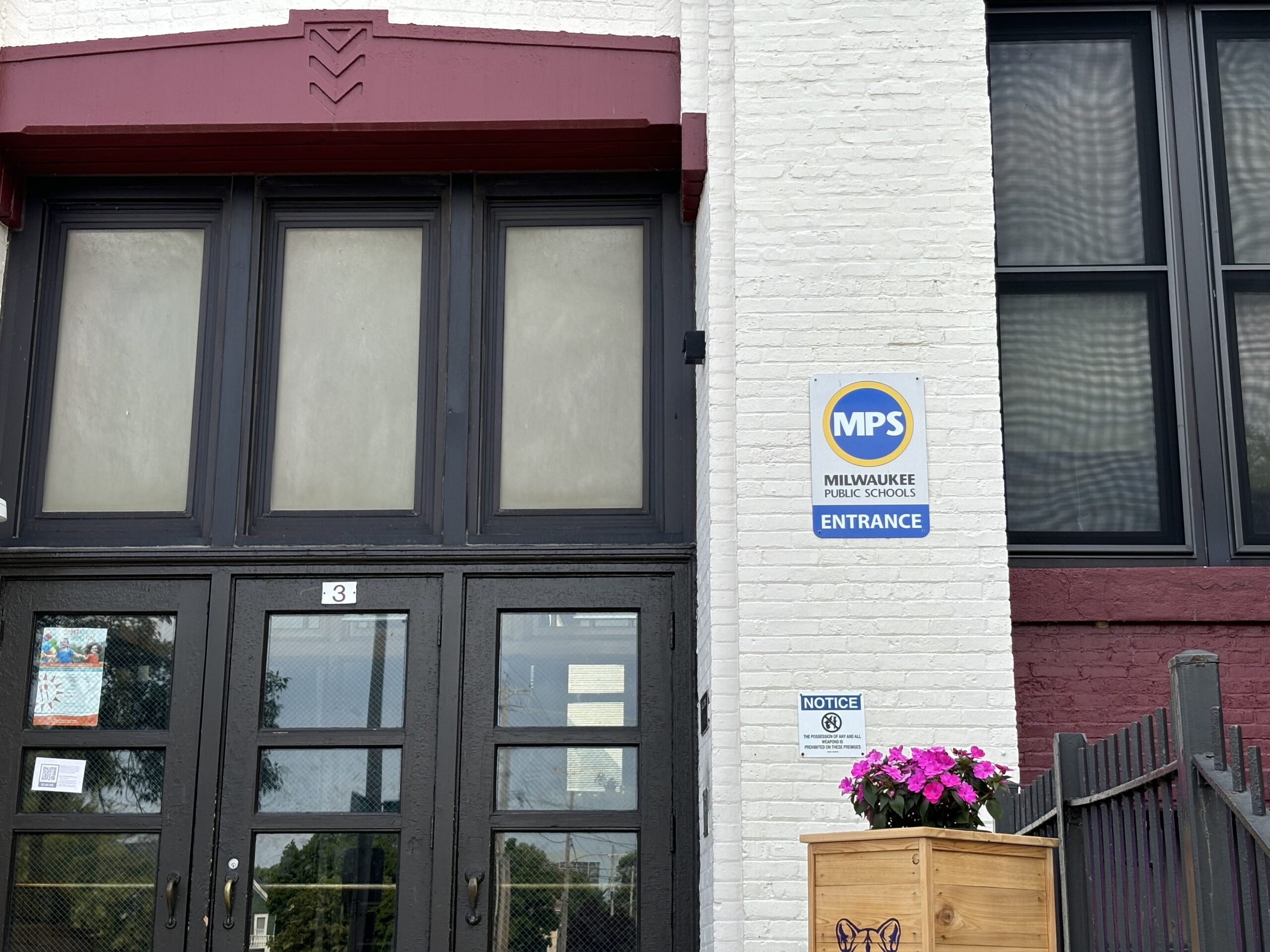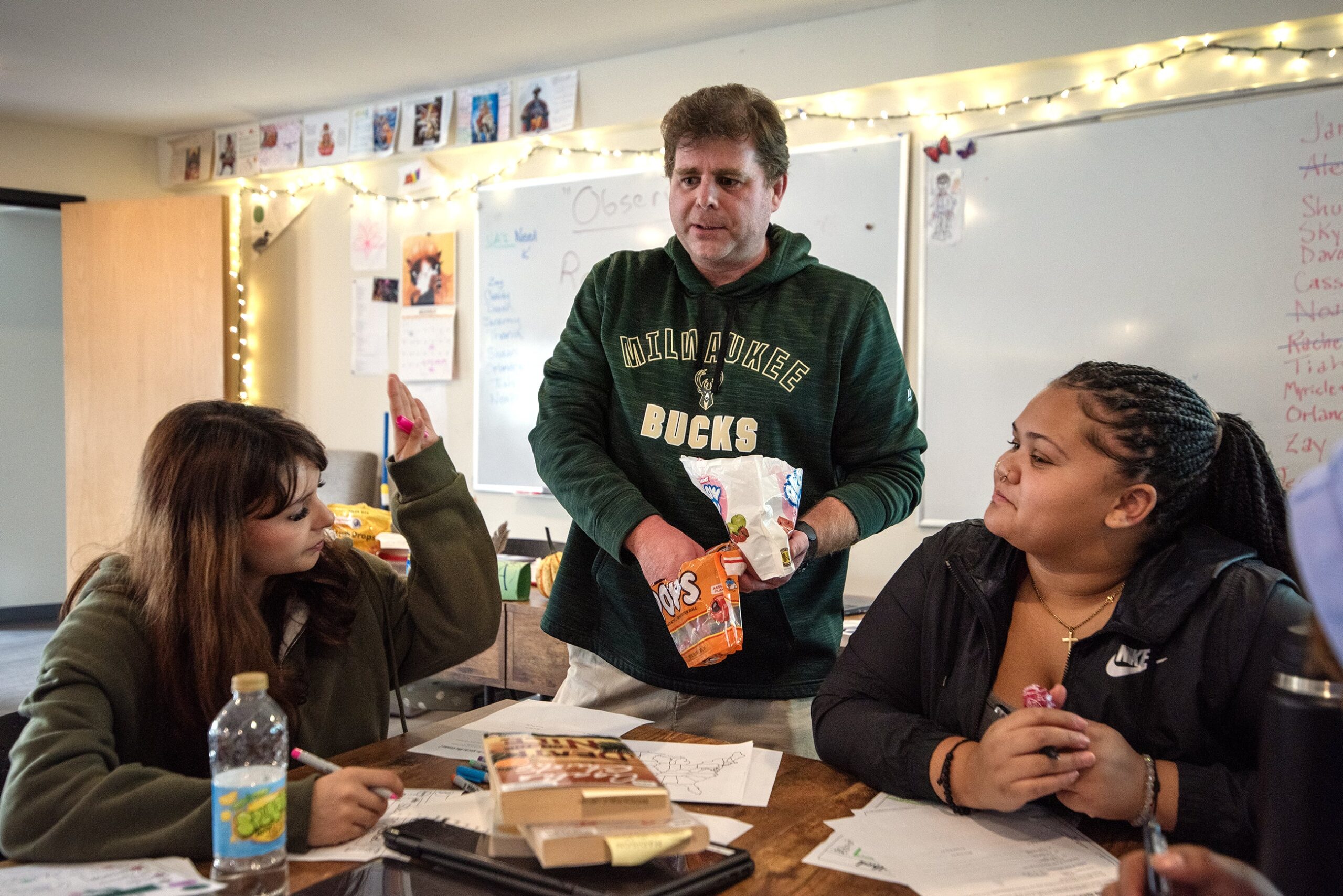When a student or staff member of the Milwaukee Public School District dies, a Crisis Response Team is typically deployed to their respective school within 24 hours.
The teams — made up of school psychologists, social workers and school counselors — take seriously the notion that it’s critical for children to know they have support during, and after, traumatic events, whether the student is close to the trauma or hears about it from a distance.
Last Tuesday morning, MPS deployed their Crisis Response Team to Keefe Avenue School to help students and staff process the death of one of their own, Sandra Parks.
Stay informed on the latest news
Sign up for WPR’s email newsletter.
Sandra, 13, was an eighth grader who loved to write, according to family and those who knew her well. She was shot to death in her house the night before.
The team went to Sandra’s school because that’s where most students had the most immediate connection to her, but in other scenarios, the team has deployed to multiple schools at once.
Travis Pinter heads the Crisis Response Team, which he said can pull from more than 50 trained staff in the district on a rotating basis.
“We can provide that first level of triage when the building staff may itself be somewhat affected by whatever the event was,” Pinter said. “I mean they worked with these kids too and it’s kids they probably know and by having a centralized team, we can do the heavy lifting up front.”
The crisis team typically arrives at the school before students do to coordinate a response. They draft statements that give students age-appropriate information — the team delivers the news to every grade in a building — of the events that have taken place. These statements are announced to the entire school in what Pinter called ‘natural groups,’ typically students’ classrooms where they have a sense of security.
Pinter said the team has a dual responsibility: maintain the order of the regular school day and then identify children who need therapeutic support.
Typically, students who need to talk about a traumatic event ask for help, but teachers can also refer students. In most cases, students who need additional support either have a direct relationship to the trauma or are loosely connected to it through a relative.
Pinter added that children don’t necessarily need to have a direct connection to the traumatic event to feel affected.
“It might be the anniversary of a significant death in their life or it might be that they actually had a really rough week the week before or whatever they happen to be going through,” Pinter said. “And so that’s recognized as well and we always help them process that.”
Pinter said students may not know how to talk about their grief, so they’re offered standard grief counseling around the event itself but most conversations are highly individualized. And sometimes Pinter says the best thing is for the student to go home.
“We’ll find a contact at home that’s a support that can come and we’ll liaison with them and they’ll take them home because they simply need to go home and you know return the next day because the news is that upsetting,” he said.
While the crisis team generally spends only one day at any given school, the support continues.
“What we do is we hand off the situation to support staff that exists in that building,” he explained. “So in all of our MPS buildings we have a psychologist, a school counselor to some extent and they all work together. And so we have a team there that can help after the fact.”
Ryan Herringa, a pediatric psychiatrist and assistant professor at the University of Wisconsin-Madison, says children without this kind of professional support can benefit by talking to any trusted adult.
He says the best thing a trusted adult can do when a child is exposed to news of a traumatic event is to see what they know about what’s taken place.
“It is I think difficult for a lot of adults to approach kids with that, but I think the more open we can show that we are and that we’re ready to support them and be here for them that’s really a key part of this,” Herringa said.
If an adult is having trouble processing an event themselves, Herringa said speaking to a therapist can be helpful. If that’s not an option, a physician, adult or member of the religious community may be helpful as well.
Herringa said adults should consider having a plan for how they want to talk about these events with children and teens because there’s a chance they’ll ask adults to talk about it on their own.
Pamela McGranahan, director of UW-Madison’s Doctor of Nursing Practice program, studies the impacts of childhood trauma. She said children are vicarious learners and they’re watching what’s going on around them at all times — even if it’s just something they hear on the news.
“And it is frightening or they don’t understand, could that happen to them? Or could that happen to their friends? I think to leave any child whose had some exposure, even to the conversation, space to share that they’re bothered by it, or frightened by it, or sad about it, it’s really important,” she said.
Wisconsin Public Radio, © Copyright 2025, Board of Regents of the University of Wisconsin System and Wisconsin Educational Communications Board.
